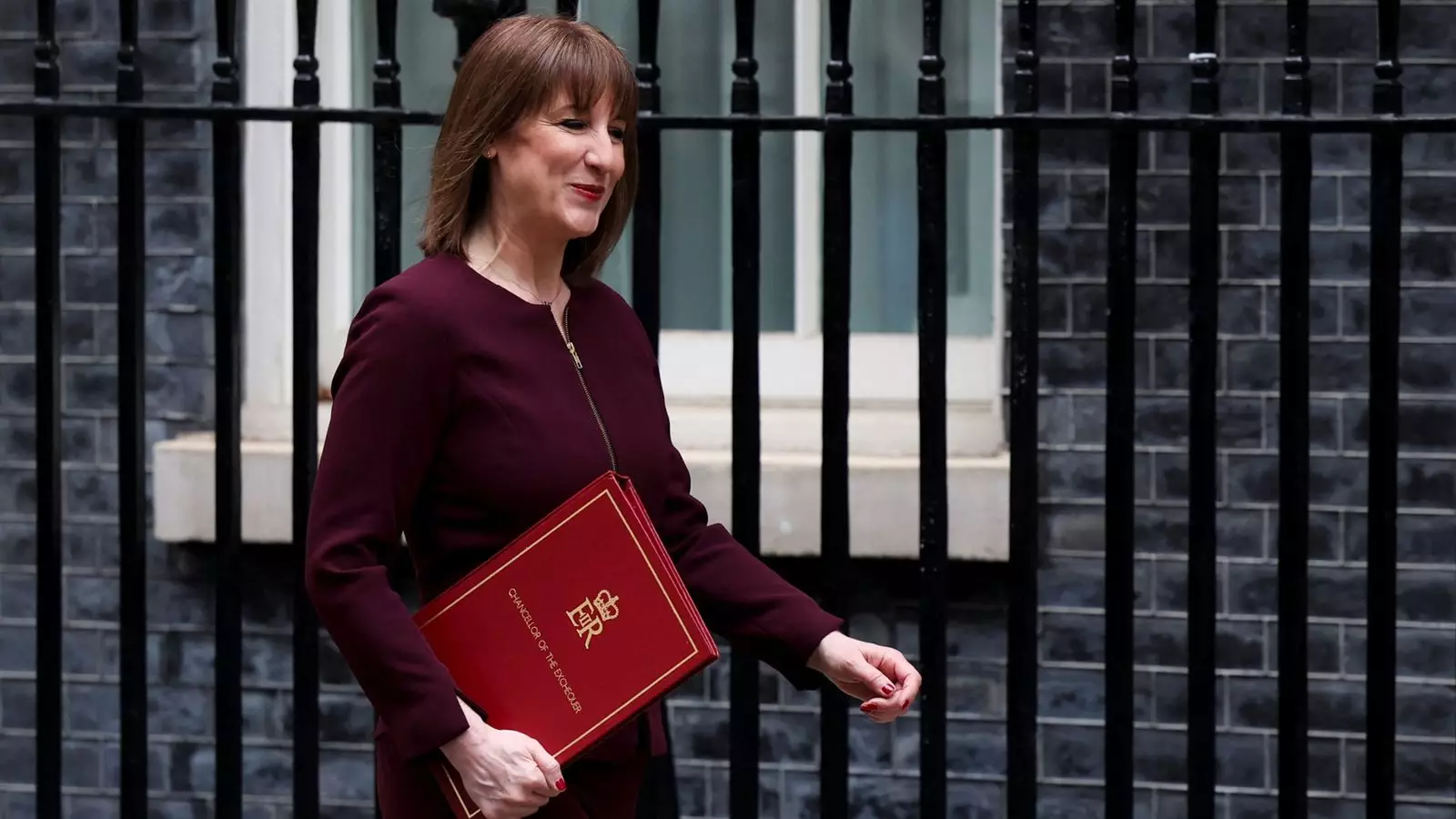Chancellor Rachel Reeves’ recent spring statement was intended to serve as a beacon of hope for the UK’s economic trajectory, but the reality paints a grimmer picture. The Office for Budget Responsibility (OBR) has slashed its growth forecast for 2025 from an optimistic 2% to a sobering 1%. Such a dramatic reduction in expectations raises questions about the effectiveness and viability of her government’s fiscal policy. While Reeves exuded confidence in her speech, the stark downgrade illustrates a worrying disconnect between political rhetoric and economic realities.
Economic growth is often seen as the barometer of a nation’s health, yet now the forecast appears more akin to a weather report predicting a storm rather than sunny economic skies ahead. If the government cannot deliver even decent growth figures, it must reckon with the fact that citizens may soon be inundated with economic despair, further fueled by inflation and rising living costs.
Promises of Future Growth, But Will They Materialize?
Reeves highlighted a more hopeful outlook for subsequent years, forecasting growth at 1.9% in 2026, followed by 1.8%, 1.7%, and another 1.8% through 2029. While the idea of future growth should offer some solace, the key question remains: what credible evidence supports these optimistic predictions? The chancellor insists that “there are no shortcuts to economic growth,” emphasizing the importance of long-term planning and reforms. However, past government promises of transformative reforms have frequently fallen flat.
Even if we take Reeves’ assertions at face value, the grim present casts long shadows upon her optimistic future. British citizens are living paycheck to paycheck, and thus a 1.9% growth in 2026 may feel more like a hollow victory if it fails to translate into tangible improvements in their daily lives. A leap from stagnation to growth must include people, not just numbers, and it is doubtful whether the proposed “serious plan” will resonate with those feeling the pinch right now.
Bright Spots: Housing and Pension Reforms
Throughout her address, Reeves pointed to potential bright spots, notably reforms to the National Planning Policy Framework which she claims will increase real GDP by 0.2% by 2030. Bringing “grey belt” land into development could indeed provide much-needed housing, but there are legitimate fears regarding the social ramifications of such policies. With housing already at crisis levels in many parts of the UK, transforming land use without comprehensive planning could lead to further gentrification and displacement.
Additionally, proposed reforms to the pension system and the introduction of a national wealth fund signify a potential shift toward more inclusive policies. However, institutional skepticism remains strong, especially in light of perceived mismanagement of public funds in years past. Will these reforms foster genuine economic empowerment, or merely serve the interests of the already affluent?
Challenges Ahead: Cuts and Criticism
Reeves’ proposals are not without their critics. Shadow Chancellor Mel Stride’s accusation of “gambling with half-fiddled fiscal targets” underscores a broader concern about the government’s accountability. The anticipated cuts to the welfare budget, projected to save £4.8 billion, will likely deepen the strain on those who rely on these essential services. Critics argue that these austerity measures compromise the wellbeing of the most vulnerable, a move that deviates from the principles of equity that should guide a progressive government.
Regarding tax policy, while Reeves claims she won’t raise taxes, she predicts generating an additional billion pounds by targeting tax evasion. Such optimism raises eyebrows; enforcement has historically lagged behind high-level rhetoric. The dreams of day-to-day spending being protected are tempered by fears that a hollowness remains at the core of the Chancellor’s financial strategy.
Defence and Civil Servants: Spending Cuts vs. Strategic Investments
The commitment to boost the defense budget demonstrates a prioritization that many citizens may not agree with, especially given the pressing social issues faced domestically. Where is the initiative to invest in health care, education, or infrastructure, which could yield long-term benefits for society? The launch of a voluntary redundancy scheme for civil servants, while touted as a quality measure to make government leaner, may also deeply affect the fabric of public service.
In this balancing act between investment and austerity, the raising of defense spending appears to overlook critical social needs. The question remains: is the government genuinely catering to the needs of its citizens, or is it prioritizing a militarized vision for Britain? The future may be bright, but it seems tinged with turbulent clouds ahead.

